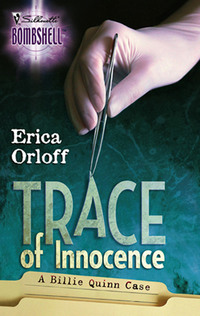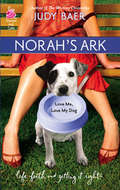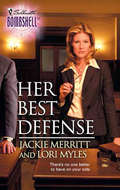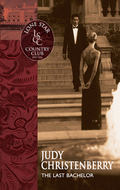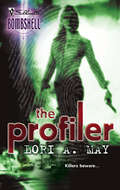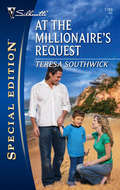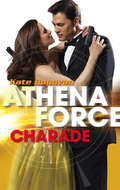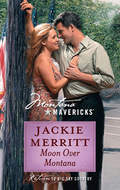Książki nie można pobrać jako pliku, ale można ją czytać w naszej aplikacji lub online na stronie.
Czytaj książkę: «Trace Of Innocence»
“You look great, David.”
“Thanks.” He grinned. “Have to say that freedom agrees with me. You look beautiful, Billie.”
“I look sweaty and I smell like beer, but if that’s your kind of gal…”
“You’re my kind of girl.”
I blushed.
Suddenly, C.C. screamed.
I looked up at the bar’s television. The anchor said, “And in a shocking twist to the release of inmate David Falco, a woman was murdered tonight in Jersey City. Sources tell CNN that the crime included a playing card left on the body. The suicide king…”
Dear Reader,
Thank you so much for purchasing the first book of my new Billie Quinn series. I wanted to write this book to show a little of the real life of CSIs—unsung heroes who gather the evidence and analyze it in the lab. As in all my books, the heroine is surrounded by an eccentric “family”—a motley crew of misfits and unusual people who comprise her circle of friends. In this book, you’ll meet Lewis LeBarge, head of the crime lab, who has a penchant for collecting brains and photos of blood spatter; Sister C.C., a nun with a passion for prison ministry; Mikey, Billie’s brother and a ne’er-do-well—but a sweetheart anyway; and the rest of the colorful characters, such as Tommy Two Trees, an FBI agent and, like Lewis, a denizen of New Orleans.
Billie herself is brainy but street smart. Her brother and father are both involved in the mob, but she has chosen to play it mostly straight in her life. She’s haunted by her mother’s murder, which has only drawn her closer to the people she loves.
I hope you enjoy Billie and her friends as they fight to clear a man in prison for murder utilizing new DNA technology. Prepare for suspense and action…and enjoy!
Erica Orloff
Trace of Innocence
Erica Orloff

MILLS & BOON
Before you start reading, why not sign up?
Thank you for downloading this Mills & Boon book. If you want to hear about exclusive discounts, special offers and competitions, sign up to our email newsletter today!
Or simply visit
Mills & Boon emails are completely free to receive and you can unsubscribe at any time via the link in any email we send you.
ERICA ORLOFF
is a native New Yorker who relocated to sunny south Florida after vowing to never again dig her car out of the snow. She loves playing poker—a Bombshell trait—and likes her martinis dry. Visit her Web site at www.ericaorloff.com.
To my sister, Stacey, for always reading my books and being one of my biggest supporters.
Contents
Chapter 1
Chapter 2
Chapter 3
Chapter 4
Chapter 5
Chapter 6
Chapter 7
Chapter 8
Chapter 9
Chapter 10
Chapter 11
Chapter 12
Chapter 13
Chapter 14
Chapter 15
Chapter 16
Chapter 17
Chapter 18
Chapter 19
Chapter 20
Chapter 21
Chapter 22
Chapter 23
Chapter 24
Chapter 25
Chapter 26
Chapter 1
Blood spatter was artfully arranged.
Photographs of crime-scene blood spatter, in stark black and white, were matted and framed, lining a long hallway with hardwood floors that squeaked as I walked.
I had stopped thinking of the photos as gruesome or even odd two years ago when I started working for Lewis LeBarge, my boss at New Jersey’s State Crime Laboratory and collector of all things macabre. He told me once that it came with the territory. “Spend enough time around the dead,” he had said to me, his New Orleans accent giving him a certain Southern charm, “and eventually you come up with ways to mock the Grim Reaper—just to let him know he hasn’t won…yet.” Lewis regularly talked to The Reaper like an old friend, asking him just how or why a dead body met its maker.
“Lewis?” I called out from the hallway. I had let myself in the front door of his old duplex in Weehawken.
“Up here,” he called out. “The office.”
I climbed the stairs. There were just two small bedrooms on the second story. One was the master bedroom, and the other he used as a home office, complete with Internet links to our database in the lab.
I poked my head in. “Ready?”
“For you, darlin’, always.” He winked at me, his prematurely gray hair giving him a distinguished look, making him seem older than his forty years.
I spied a new photo on the wall. The blood puddle next to the gunshot victim looked like black syrup. “Has anyone ever suggested to you that perhaps the reason you never make it past the first date with a woman is your taste in art?”
“Now, Billie, I’m just waitin’ for you to realize we’re the ones meant to be together. And until then—” he mock-sighed “—I remain alone and desperately lonely in this cold Northern city.”
“Don’t give me that…your New Orleans gentleman charm is a magnet for women. I’ve seen them clustered around you like bees buzzing around a flower.”
“I never hurt for first dates, but, as you so kindly pointed out, it’s getting to date number two that’s difficult.”
I looked over at the aquarium tank on the shelf, which housed an enormous tarantula he had named “Ripper,” after the serial killer he once wrote a thesis on. I’m not squeamish—you can’t be, working in a forensics lab—but spiders give me the creeps. Especially hairy ones.
“Maybe you should try telling them you do something sane. Boring, even. Ever try saying you’re an accountant? Working with numbers all day is certainly an improvement over saying you spent the day examining brain matter.”
“Eventually, I’d be found out. And with the exception of you, there aren’t many women who enjoy discussin’ blowflies on dead bodies and the rate of maggot infestation over a lovely supper of jambalaya.”
“Really? I would have thought some women would love to hear all about it. Especially while eating.” I rolled my eyes. “I’ve got you figured out. You, dear Lewis, love to scare them off.”
“Perhaps I do.” He winked at me. “How’s that cop you’ve been dating?”
“Good…when he’s on the wagon.”
“And when he’s not?”
“Come on, Lewis, neither of us has a stellar track record in the love department.”
“We’re both married to the job.”
“I suppose we are. You ready?”
“Darlin’, I wouldn’t miss this chance to mingle with the underworld of New Jersey for anything. Your family is like an anthropological field study.”
“Shut up,” I snapped, but grinned at him as he stood up, ducking his head slightly to avoid hitting the overhead lamp. Lewis stood a lanky six foot two inches in his custom cowboy boots. He wore his standard-issue black Levi’s and white oxford cloth shirt, well-worn at the elbows, with a pair of black onyx cuff links I swear he put on every shirt he wore. He turned off the lamp and the two of us made our way downstairs and out the door. My big maroon Cadillac was parked on the street.
“Still driving the Sherman land tank, I see.”
“I can’t part with it—despite how much gas this thing guzzles. My uncle Sean left it to me when he went inside.”
“‘Inside,’” Lewis mused, as he climbed in the car Uncle Sean gave me when he drew thirty years for aggravated assault and murder—he’d not only killed his victim, but taken a hacksaw to him. “I do love how the Quinn family has such special euphemisms—like this party we’re going to.”
“What? It’s a Welcome Home party for my father. What’s wrong with that?”
“You mean a Welcome Home from Rahway Prison party. But no doubt your aunt Helen will make one of her wonderful cheesecakes for the occasion. I’m fond of the strawberry one. Very moist.”
“Lewis, it’s still a coming-home party, no matter where he was prior to actually coming home. Besides, this time was really stupid. A parole violation…busted at an illegal card game. I mean, come off it. You sometimes sit in with them, too.”
I started the car and pulled away from the curb, biting my lip in irritation for a minute. There was nothing I hated more than cops going after bullshit crimes when murderers and child molesters were a plague.
Lewis leaned back against the plush velour seats. “Well, all I can say is family parties with y’all is like stepping into a Scorsese film. I love bein’ around your relatives. They are quite entertainin’.”
I drove from Lewis’s place to JFK Boulevard and eventually steered my way toward Hoboken, coping with heavy traffic.
“But you know, Billie, I’ve still never understood how it is you managed to turn out…honest and law-abiding, if a little unusual around the edges.”
I shrugged, staring ahead at the highway. “I don’t know.”
“Come on, I know you’ve thought about it. You must have some explanation.”
I had thought about it. Endlessly. Until my head hurt, sometimes. My mother had disappeared when I was nine. The cops had bungled the case, more interested in focusing on my father—head of an Irish crime family—than in uncovering the truth. When her body turned up six months later—nothing left but bones and the shreds of her dress—they arrested the wrong man, eventually freeing him without the case going to trial when his alibi was airtight. He’d been sitting in county lockup the night of her murder, on a DUI charge.
“I don’t know, Lewis, I just wanted to solve murders. And if I became a cop, my family would have disowned me. So working for you is about as close as I can get to fighting the bad guys legally. Why did you go into forensics?”
“You know. An obsession with blood and guts. Liked to drive my mama mad with bring-in’ home dead animals.”
Of course, I knew Lewis’s reasons ran as deep as my own. He’d been at Tufts, bent on an academic career as a scientist and college professor when the bayous of Louisiana began giving up their dead. One by one, floaters came to the surface, women tortured and murdered by a serial killer. One of the dead was his childhood sweetheart. His path changed, and he never looked back.
The two of us drove through the streets of Hoboken to Quinn’s Pub, owned by my father’s brother, Tony. If “pub” conjures up images of darts and leather booths, that’s not Quinn’s. It’s a rough bar you don’t go to unless you know Tony—or can hold your own among the tough guys who hang there after long shifts driving cement mixers, or otherwise breaking their backs earning a living. It’s one of the last neighborhood places around. I parked the car around the corner on the street and the two of us made our way to the entrance. The sidewalks were already teeming with relatives and pals of my dad.
“Billie!” Tony threw his rock-hard, tattooed arms around me as we maneuvered our way inside, squeezing past the crowds. “Your dad’s at the tables. How you doin’, Lewis?”
“Fine, just fine,” Lewis said, smiling and taking a bottle of beer offered to him by Pammie, a waitress in skin-tight black jeans and a Quinn’s Pub T-shirt—black with a green shamrock embroidered on the chest. I saw her eye him flirtatiously.
I took Lewis’s other hand so I wouldn’t lose him as we snaked our way through the bar. We reached the back room, with its four pool tables. Dad was about to sink his last ball into the corner pocket. He let out a whoop when it went in, the ball spinning fast, and collected his forty bucks from his opponent. Then he spotted me and came over and planted a kiss on the top of my head.
“Billie.” He smiled and looked at me, then grabbed me in a hug. With Dad and me, we don’t have to say much. We know how we feel.
Dad stands about six feet tall—a good four inches taller than I am. We both have black hair, though his is now flecked with gray at the temples. We both have greenish-blue eyes. He has an olive complexion, though, and mine is pale with a smattering of freckles on my cheeks and nose. My nose turns up just a bit—and I look like a tomboy, with two deep dimples. Even though I’m twenty-nine, I still get carded when I buy beer at the grocery store.
“Good to see you, Daddy. Sorry I didn’t get you from prison today—I was knee-deep in analyzing a shipment of drugs found in someone’s trunk. Heroin. Street value near a million dollars. Uncle Tony said it wasn’t a problem to go get you.”
“Nah, not at all.” Dad shook his head in disgust. “Besides, it’s good to get that crap off the streets.” The Quinn family had its hand in bookmaking, a little loan-sharking and trafficking in stolen property—mostly pirated DVDs. Occasionally, a Quinn family member will fight violence with violence. But my father won’t tolerate drugs. Not just in my brother and me growing up, but in anyone who’s going to have anything to do with the Quinn family.
“Want to play a game, Lewis? A friendly wager?”
Lewis looked at me and grinned. My father had to serve a four-month sentence for parole violation. The entire time, Lewis had been practicing his pool game. He was hoping to actually beat my father, something he hadn’t been able to do since the day they met.
“As you so eloquently say, rack ’em up.”
The two of them bet twenty bucks each, which I held in my right front pocket to make it official, and soon they were playing hot and heavy.
Despite Lewis’s near-daily practice, he was still down two when we heard a commotion out front. Shouts rose above the usual din of the crowded pub, and I turned my head to see the crowd actually morphing, moving as it accommodated a growing brawl. A crowd in a bar fight seems to become a living thing.
“Christ, it’s Murphy’s boys,” my father said.
Lewis looked at me quizzically.
“Hand me that,” I said, gesturing to his pool cue. He did and I stood waiting. So did my father.
Within two minutes, the brawl had pushed its way into the pool room. I recognized three of my cousins and all five Murphy brothers going at it. One cousin connected with a solid left hook on the square chin of Pat Murphy, and let loose with a stream of expletives, ending with, “…that’s what you get for beating up a woman.”
That was enough for my father and me. I hoisted the pool cue and brought it down on the shoulder of Jimmy “Tank” Murphy. He turned to take a swing at me, but I held the cue like a bat and gave him a solid swing right in the ribs. He fell back against a pool table, grabbed a glass and threw it at my face. It missed and shattered to the floor. Next thing I knew, a striped pool ball barely missed my forehead. Chairs were overturned, more glasses broke, and I decided I’d had enough.
I looked around at the escalating fight and knew Tank was the key to it. Whenever the biggest, burliest, nastiest Murphy went down, the other brothers usually fell in line. Blood poured from Tank’s nose, but still he charged like a bull. I took the pool cue as he came at me and instead of swinging at his ribs, I lowered the cue and brought it up, with all my might, between his legs. He immediately collapsed as I connected with my intended pair of targets.
Slowly, surely, the brawl died down from there. The Murphy brothers were bounced out the door by Tony’s three sons—one a muscle-bound bodybuilder the width of my Cadillac. The pub was a mess, but it was no showplace to begin with.
Lewis surveyed the wreckage. “Do y’all know how to throw a party without it ending up like the O.K. Corral?”
“It’s an old feud.”
“Feud? I’d say it’s World War III.”
“Come on.” I kissed my father goodbye and gingerly climbed over the broken glass and chairs, making my way with Lewis outside. When we got out on the sidewalk and started walking to our car, I said, “My brother, Mikey, fell in love with the youngest Murphy sister. They’ve been living together for a year now.”
“Isn’t your brother in prison at the moment?”
“Yeah. He gets out next month. But Marybeth and my brother are still sickeningly in love. Anyway, there’s bad blood with the Murphys. Always has been. My father and old man Murphy used to fight it out over bookmaking territory. And the brothers are really not nice guys. I take it one of them hit a girl tonight. But really, it’s old stuff—mostly having to do with Dad.”
“Your father was involved in illegal activity?” Lewis asked with mock horror.
I punched him in the arm. “Go back to the South, you ass.”
“So these Murphys, they just show up and start brawls?”
“Pretty much.”
“You’re quite handy with that pool cue.”
“Practice. My father and brother have been hustling pool my whole life. Sometimes people don’t take too kindly to losing.”
“I was so close to beating him tonight.”
“No, you weren’t.”
“But I was!”
“Lewis, you’ve improved, but Minnesota Fats doesn’t have to worry.”
We turned a corner, and I immediately stopped in my tracks and put my arm out to halt Lewis, too.
“Wish I’d brought that pool cue,” I muttered. Because there, sitting on the hood of my land tank, was the biggest, most hulking man I’d ever seen in my life. And he was clearly waiting for us.
Chapter 2
“Can I help you?” I asked warily.
The man slid off my hood and stood on the sidewalk, thrusting out his hand, which was the size of a baseball mitt. “Joe Franklin,” he said, smiling.
I didn’t take his hand. “What do you want?”
“A minute of both of your time.”
I turned to look at Lewis, but he had broken out in a huge grin. “Joe Franklin! My God, but I once made a thousand bucks off of you.” He walked to the man and shook his hand.
“You two know each other?” I asked.
“No,” said Lewis. “Never met. But this is Joe Franklin from the New Orleans Saints. Center. Retired. Blew his knee out, home game against Tampa Bay Bucs.”
“Nice to meet you,” I said. I was completely confused, but then again, this was Lewis we were talking about. He invites confusion with the wily way he talks sometimes.
Joe Franklin smiled. He had the slightest of gaps between his two front teeth, which gleamed like a toothpaste-commercial smile. “We had a few losing seasons when I was with the Saints. You must have bet against the home team.”
“Naw, not me. I bet the over-under. I would never bet against the Saints. And you were the greatest center in the NFL at the time.”
“Thanks. Nice to be remembered. Well, listen, Mr. LeBarge—”
“Lewis.”
“Well, Lewis…Ms. Quinn—”
“How do you know my name?” I asked suspiciously.
“I’m the founder, with my partner, C.C., of the Justice Foundation.”
Now it all made sense to me. The Justice Foundation was a nonprofit group dedicated to freeing innocent prisoners through the use of DNA evidence.
“I’d like,” he said, “to buy you both a drink and see if maybe you might see it in your hearts to help us.”
I rolled my eyes. Where I come from, we know that if you’re in prison, even if the charge is made-up, chances are you belong there anyway. The guy they originally thought killed my mother was freed when he came up with an alibi. But he was arrested not six months after his release for strangling his stepdaughter.
“I don’t know.” I hesitated.
“Well, I could always use a drink,” Lewis said. “If you promise to regale me with the story of the time y’all beat the Bucs with that Hail Mary pass, I could at least listen to what you have to say.”
“Deal,” said Joe, flashing his megawatt smile. “Margaritas sound okay?”
Lewis nodded. “Man after my own heart. I like a nice tequila myself. Also like a smooth bourbon.”
“He hasn’t met a liquor he doesn’t like,” I muttered. Then I shrugged and sighed, but fell into step with Lewis and Joe. As we walked, I noticed that the massive man next to me was wearing loafers that had easily set him back a grand, and his pants had the crisp cut of an Italian designer. His leather jacket—which had to have been custom-made, given his ex-NFL build—looked butter soft.
“You went to law school after the NFL, right?” Lewis asked.
Joe nodded. “Blew my knee out, but they still had to honor the rest of my contract. I had invested wisely over the five years I played. Owned my place outright, owned my car. Didn’t buy into the flash—except maybe for my clothes.” He grinned, running his hands down the lapel of his jacket. “I drove a nice Mercedes sedan, not a souped-up sports car. I was set for life, as far as I was concerned. Invested in real estate, some solid stocks. My mama taught me very well. ‘Don’t be a flash in the pan, son,’ she used to say. I was restless in retirement. She’d always instilled in me a love of reading and education so I decided to go to law school. After a couple of years with a blue-chip firm, I started my own private practice. I represent a lot of my old NFL buddies. Making almost as much as when I was with the league. But I started the Foundation because I felt that there were too many young African-American men in prison and that DNA might help get some of the innocent ones out. Since then, we’ve freed men of all colors and backgrounds.”
I pulled my jacket tighter around me as a brisk wind whipped down between the tall apartment buildings. The sign for Coyote Canyon was lit in neon, with a giant green cactus sign jutting out over the door. The place used to be a hole-in-the-wall, before Hoboken became a trendy place to live back two decades or so ago. Yuppies started renting anything and everything they could find, hence Coyote Canyon became popular with the suit-and-tie crowd fresh off the commuter trains that hurtled beneath the river to Manhattan.
When we walked in, the hostess recognized Joe and pointed to a table where a woman sat waiting for us. We maneuvered around the women in Manhattan stylish clothes and the men with real Rolex watches on their wrists and sat down. Joe leaned over to give the woman a peck on the cheek first.
“Lewis LeBarge, Billie Quinn, this is Sister Catherine Christine. She goes by C.C.”
The woman stood and smiled and shook each of our hands. She was stunning—and not dressed in a nun’s habit. She wore a simple black turtleneck and black pants over black riding boots. She had a plain gold band on her left hand, and a simple gold cross around her neck with a diamond chip in the center of it. Her hair was long—and she had lots of it, in tight, strawberry-blond curls.
“Thank you so much for agreeing to meet with us,” she said, smiling.
I looked over at Lewis, who was clearly captivated by her. He drawled, “May I ask how a nun and a football player ended up as partners?” He smiled as we sat down.
C.C. looked at Joe, who nodded.
“Well,” she said in a soft, gentle voice. “I was in prison ministry…. I know it seems an odd choice, but I always felt like prisoners are the modern-day lepers. Forgotten, tossed away…And I met a young man by the name of Thomas Garson. He’d been railroaded into taking a plea bargain for murder two, but he was innocent.”
“How did you know?” Lewis asked.
“Intuition. Prayer. Divine guidance. And I’ve been doing this long enough to smell the guilt on a man.”
I tried to avoid laughing out loud. Lewis and I were creatures of science—and intuition and prayer weren’t high on our agenda. Lewis was an atheist. I hadn’t darkened a Catholic church in years. I understood what was under a microscope or in my test tube. I trusted traces of blood and sperm, or intricate patterns of crystallized drugs. Like most criminalists, I was a chemistry major in college, and I had my masters in molecular biology.
“Thomas was a fan of Joe’s. His family had moved to New Jersey from Louisiana when he was a boy, but like a lot of people, he still rooted for that hometown team. Me? I could move to Alaska and still root for the Giants.”
“A nun who follows football?” Lewis cocked an eyebrow.
She laughed and continued. “I promised to try to get him an autograph or a letter of encouragement. I’m sure Joe thought I was crazy, but I tracked him down. I hadn’t realized he had gone into law. I told him about Thomas, and one thing led to another and Joe took his case pro bono and won an appeal. Thomas is now the file clerk for Joe’s firm. Has a new baby daughter and a pretty young wife who’s a paralegal.”
“A happy ending,” I said dryly. C.C. nodded. “But for every happy ending, there’s an innocent man languishing. More like ten innocent men. If they’re of color or they’re Hispanic or foreign-born, the number rises.”
A waitress came over and Joe ordered a pitcher of margaritas and a basket of chips with salsa.
“No offense, Sister,” I began. “But we just process the evidence. It’s not for us to determine if some guy is guilty or innocent.”
“Please call me C.C.” she said. I wanted to dislike her because she gave off an aura of such kindness my instinct was to think she was a fake, but I couldn’t make myself. She just seemed that nice.
The waitress returned with a pitcher, four glasses and a basket filled with freshly warmed tortilla chips.
“Look,” Joe said, leaning on the table with both elbows. “Walter Leighton used to advise us. But now that he’s a super celebrity, he’s forgotten us. We need you two to help us look at cases to see if there’s even the possibility that new evidence might reverse a conviction or win a new trial.”
“I always knew that Walter’s swelled head would get the best of him,” Lewis said.
Walter Leighton had written the forensic bible. When he consulted on a couple of really huge cases, his face time on Court TV, Dateline, Primetime Live and the Today Show increased until he was pretty much a household name and a celebrity. Then he had a ghostwriter pen two novels about a forensics investigative team and a police detective, sold about a million copies of each, and now he was famous and rich. Lewis hated the sight of Walter. I used to think it was professional jealousy. After I got to know Lewis better, I realized he saw the arrogance in Walter. It would be just like that guy to abandon the Justice Foundation. If Walter had walked away from C.C. and Joe, I knew just what Lewis was going to say before he even said it.
“We’ll be happy to offer our professional opinions where we can,” he said.
We. I’d gotten used to that, too. It was as if he thought of us as one person in that lab.
C.C. took out a folder from her briefcase. Her eyes were moist when she looked at us. “You have no idea how grateful we are.” She absentmindedly patted Joe’s forearm. “This work…it’s our lives.”
She slid the folder across the table.
Staring up at me from the mug shot was a man who made me blink slowly several times. He was beautiful. But beyond that, his eyes were soulful. Large and dark. He had a small scar on his left cheek, right near the corner of his eye, which brought my gaze to rest right at his pupils. His eyelashes were dark and made his eyes appear almost angelic. His hair was black and thick, with curl at the ends. He held up his processing number, and he looked stunned.
“What’s pretty boy’s story?” Lewis asked.
“David Falco is serving life for a rape-murder. The suicide king case,” C.C. replied.
“I don’t remember that one,” I said.
“About ten years ago. A woman murdered in her apartment. She was an acquaintance of his. She was splayed out, and the suicide king from a deck of playing cards—you know, the one with the knife through the head—was left by her side. A knife had been plunged into her temple.”
“Oh yeah.” I nodded. “Now I remember.” I had learned not to shudder anymore. Too many depraved cases.
“Evidence tying him to the murder?” I asked. For reasons I couldn’t explain, I had a knot in my belly, as if I wanted to believe that the man whose face was so innocent-looking had to be, in fact, innocent.
“Not much. He admitted he had been in her apartment, so his fingerprints were there, but no fingerprint on the knife or the playing card. He was seen leaving her apartment in the window of time when she was likely murdered—but so was another man who was never found or questioned. David said the three of them had been hanging out together.”
“So who was the other man?”
“He doesn’t know. Said it was a friend of hers. But he never got the guy’s name.”
“Sounds fishy,” Lewis said.
“I know,” said C.C., “but there was possibly semen on her panties—panties lost by the police. The case was botched from the word go. And I don’t know…he just doesn’t give off a dangerous vibe.”
“None of them do,” Lewis said, pouring himself another margarita.
“That’s not so. Even men who are innocent, after a time in prison, they start to smell of violence. They give off that feeling. But not him.”
“So where do we come in?” I asked, still fascinated by the picture.
“Well, the panties surfaced after the trial in a paper bag in another evidence file. They were well preserved and I figure we have one shot at testing what may or may not be semen. I mean, we think it is. And we just need a break on this one.”
I sipped my margarita and stared down at the picture. I wondered what the years in prison had done to that innocent-looking face.
Darmowy fragment się skończył.
